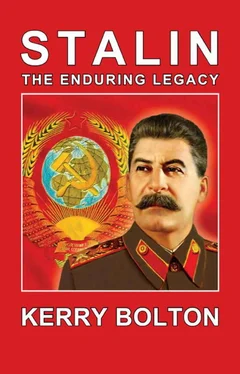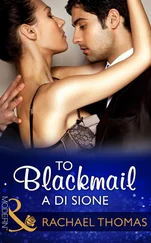Trotsky’s Where is Britain going? was published in 1926 by George Allen & Unwin. His autobiography, My Life, was published by Charles Scribner’s Sons, New York, 1930. Stalin: an appraisal of the man and his influence, was published posthumously in 1946 by Harpers.
The most salient example being the hagiographies by Isaac Deutscher, The Prophet Armed (1954), The Prophet Unarmed: Trotsky 1921-1929 (1959), and The Prophet Outcast (Oxford University Press, 1963).
‘Origins of the Cold War: How Stalin Foiled a New World Order’, Chapter V below.
Russian translation: ‘Origins of the Cold War’, Red Star, Russian Ministry of Defense, http://www.redstar.ru/2010/09/01_09/6_01.html
K R Bolton, ‘Mikhail Gorbachev: Globalist Super-Star,’ Foreign Policy Journal, April 3, 2011, http://www.foreignpolicyjournal.com/2011/04/03/mikhail-gorbachev-globalist-super-star/
Russian translation: “Mikhail Gorbachev: Globalist Super-Star,” Perevodika, http://perevodika.ru/articles/18345.html
Tony Halpin, ‘Vladimir Putin Praises Stalin for Creating a Super Power and Winning the War’, The Sunday Times, London, December 4, 2009, http://www.timesonline.co.uk/tol/news/world/europe/article6943477.ece
Tony Halpin, op. cit.
Armand Hammer, Witness to History (Kent: Coronet Books, 1987), 160. Here Hammer relates his discussion with Trotsky and how the Commissar wished to attract foreign capital. Hammer later laments that this all turned sour under Stalin.
Richard B Spence, ‘Interrupted Journey: British Intelligence and the Arrest of Leon Trotsky, April 1917’, Revolutionary Russia, 13 (1), 2000, 1-28.
Spence, “Hidden Agendas: Spies, Lies and Intrigue Surrounding Trotsky’s American Visit January-April 1917,” Revolutionary Russia, Vol. 21, No. 1., 2008.
Peter Grosse, ‘Basic Assumptions’, Continuing The Inquiry: The Council on Foreign Relations from 1921 to 1996, (New York: Council on Foreign Relations, 2006). The entire book can be read online at: Council on Foreign Relations: http://www.cfr.org/about/history/cfr/index.html
The 1933 charges against employees of Metropolitan-Vickers, including six British engineers, accused of sabotage and espionage. M Sayers and A E Kahn, The Great Conspiracy Against Russia (London: Collett’s Holdings, 1946), 181-186.
P Gregory, ‘What Paul Gregory is writing about’, December 18, 2010, http://whatpaulgregoryisthinkingabout.blogspot.com/2010/12/stalin-putin-justice-bukharin.html
Jack Kemp, et al, Russia’s Wrong Direction: What the United States Can and Should do, Independent Task Force Report no. 57 (New York: Council on Foreign Relations, 2006) xi. The entire publication can be downloaded at: http://www.cfr.org/publication/9997/
As was the case when Russia was condemned with Cold War-type rhetoric for going to the assistance of South Ossetia after the invasion by Georgia in 2008.
‘Senator McCain on Khodorkovsky and US-Russia relations’, Free Media Online, December 18, 2010, http://www.govoritamerika.us/rus/?p=17995
The same situation arose with the jailing of the ‘punk’ female group ‘Pussy Riot’ for staging a filth-ridden stunt against Putin in a Russian Orthodox Cathedral, their jailing having become a cause celebre among anti-Putin interests in Russia and around the world. This is a perfect example of ‘rootless cosmopolitanism’ that continues to be used against Russia.
C Gershman, ‘The Fourth Wave: Where the Middle East revolts fit in the history of democratization—and how we can support them’, The New Republic, March 14, 2011. NED, http://www.ned.org/about/board/meet-our-president/archived-presentations-and-articles/the-fourth-wave
‘The Case of the Trotskyite-Zinovievite Terrorist Centre’, Heard Before the Military Collegium of the Supreme Court of the U.S.S.R., Report of Court Proceedings, ‘Indictment’, Moscow, August 19-24, 1936.
Sidney Hook, ‘Reader Letters: The Moscow Trials’, Commentary Magazine, New York, August 1984, http://www.commentarymagazine.com/article/the-moscow-trials/
Joseph E. Davies, Mission to Moscow (London: Gollancz, 1942), 26.
Ibid., 34.
London Observer, August 23, 1936.
Davies, op. cit., 35.
Cited by A Vaksberg, Stalin’s Prosecutor: The Life of Andrei Vyshinsky (New York: Grove Weidenfeld, 1991), 123.
D N Pritt, ‘The Moscow Trial was Fair’, Russia Today, 1936-1937. Sloan http://www.marxists.org/history/international/comintern/sections/britain/pamphlets/1936/moscow-trial-fair.htm
Ibid.
Ibid.
Tomsky had committed suicide.
Pritt, op. cit.
Jeremy Murray-Brown, ‘The Moscow Trials’, Commentary, August 1984, http://www.commentarymagazine.com/article/the-moscow-trials/
Ibid.
Sidney Hook, ibid.
See: Chapter V, ‘Origins of the Cold War.’
Central Intelligence Agency, ‘Cultural Cold War: Origins of the Congress for Cultural Freedom, 1949-50’, https://www.cia.gov/library/center-for-the-study-of-intelligence/kent-csi/docs/v38i5a10p.htm#rft1
For example, a position supported by leading US Trotskyite Max Shachtman, Shachtmanism metamorphosing into a virulent anti-Sovietism, and providing the impetus for the formation of the National Endowment for Democracy. Trotsky’s widow Natalya as early into the Cold War as 1951 wrote a letter to the Executive Committee of the Fourth International and to the US Socialist Workers Party (May 9) stating that her late husband would not have supported North Korea against the USA, and that it was Stalin who was the major obstacle to world socialism. ‘Out of the Shadows’ Time, June 18, 1951. ‘Natalya Trotsky breaks with the Fourth International’, http://www.marxists.de/trotism/sedova/english.htm
Given the many Trotskyites and Trotsky sympathizers such as Sidney Hook, became apologists for US foreign policy against the USSR, it might be asked whether Stalin’s contention that Trotskyites would act as agents of foreign powers was prescient?
George Novack, “‘Introduction,’ The Case of Leon Trotsky’, International Socialist Review, Vol. 29, No.4, July-August 1968, 21-26.
Ibid.
‘Russia: Trotsky and Woe’. Time, January 11, 1937. http://www.time.com/time/magazine/article/0,9171,757254,00.html
Novack, op. cit.
Descriptions by Novack.
See also: John Dewey, Jo Ann Boydston, John J McDermot, John Dewey: The Later Works, (Southern Illinois University, 2008), 640.
Carleton Beals, ‘The Fewer Outsiders the Better: The Master Comes to Judgement’, Saturday Evening Post, 12 June 1937. http://www.revleft.com/vb/fewer-outsiders-better-t124508/index.html.
Читать дальше












